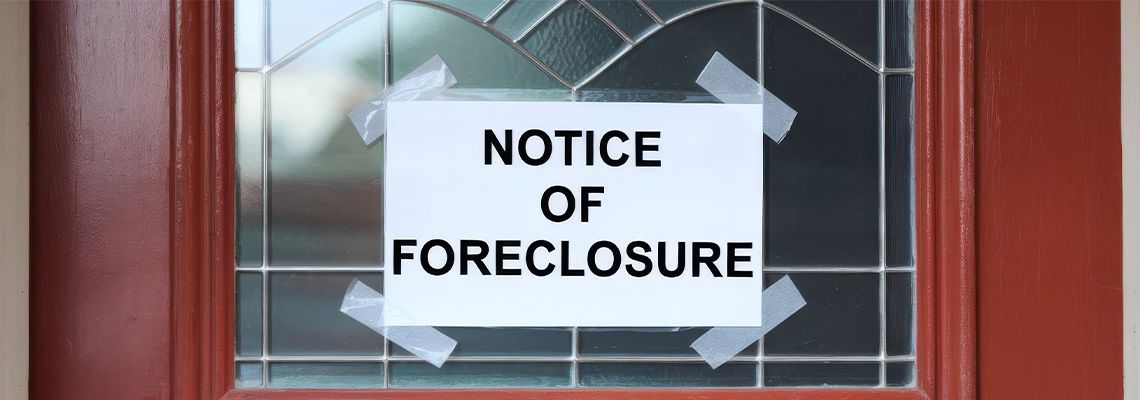
Loan Modification vs. Bankruptcy: Which Is Better for Avoiding Foreclosure?
When financial worries creep in, your dream home can feel less like a sanctuary and more like a source of stress. If you’re at risk of foreclosure, know that there are options available to you.
At Hoke Law Firm, we help Louisiana property owners in Baton Rouge, New Orleans, Lafayette, and surrounding areas protect their homes, even during challenging financial times. With years of hands-on experience, our legal team is here to provide tailored solutions and peace of mind.
Many people choose to avoid foreclosure and regain financial stability by opting for loan modification or bankruptcy.
Both options come with their own advantages and drawbacks. Our goal is to help you understand what each entails so that you can make an informed decision. Below, we identify the key differences between loan modification and bankruptcy and explore the relevant Louisiana laws.
Understanding Loan Modification
A loan modification is an agreement in which your mortgage lender adjusts the terms of your loan to make your monthly payments more affordable.
This could involve lowering interest rates, extending the loan term, or even reducing the principal balance (although the latter is less common).
A loan modification could work for you under the following circumstances:
Temporary financial hardship: If your financial problems are temporary and there’s a reasonable expectation of recovery, loan modification might help you stay in your home without upending your credit completely.
Steady income: Lenders usually look for borrowers who can demonstrate steady income to resume modified payments on a consistent schedule.
Willingness from lenders: Not all lenders are readily willing to approve loan modifications. This process may require significant back-and-forth, making it time-consuming and stressful without the assistance of a lawyer.
Most loan modifications occur under programs like the Making Home Affordable (MHA) initiative or other lender-run options.
However, some borrowers encounter difficulties persuading lenders to approve their requests, particularly if their financial hardship doesn’t fit neatly into the specified criteria.
Exploring Bankruptcy as a Foreclosure Solution
Bankruptcy can stop foreclosure via the federal automatic stay. Filing for bankruptcy places an immediate legal barrier between you and your creditors, which can give you time to assess your next steps.
Chapter 7 Bankruptcy
Under Chapter 7, borrowers can discharge unsecured debts, such as credit card balances, freeing up resources to redirect toward mortgage payments. However, properties with substantial equity may carry an inherent risk.
Chapter 13 Bankruptcy
Chapter 13 allows borrowers to catch up on missed mortgage payments by establishing a repayment plan lasting three to five years. This option is particularly effective for homeowners determined to keep their property while managing other debts.
Foreclosure Laws in Louisiana
Louisiana’s foreclosure process operates under specific laws that borrowers should be aware of. As a judicial foreclosure state, lenders are required to file a lawsuit and obtain court approval before they can seize a property.
Understanding these legal steps is essential for homeowners in the state.
Pre-filing notices: Borrowers are generally entitled to receive notices of default, providing them with an opportunity to cure delinquent payments or explore alternative options.
Redemption periods: Louisiana law allows a very short time to redeem the property after foreclosure, typically measured in days.
Lender rights and deficiencies: Under Louisiana law, if the property is sold for less than the mortgage balance owed, lenders may pursue you for the difference (called a deficiency judgment).
Loan Modification or Bankruptcy: Which Is Better
Choosing between a loan modification and filing for bankruptcy isn’t always straightforward. It depends on your financial circumstances, property goals, household income, and the extent to which you are behind on your mortgage payments.
Comparatively speaking:
Loan modification lets you negotiate new payment terms with your lender, offering a chance to regain financial stability with minimal impact on your credit score. However, approval largely depends on the lender's discretion.
Bankruptcy, though it may have a more significant short-term impact on your credit report, provides immediate relief from foreclosure efforts. In particular, filing for Chapter 13 can offer a structured path to retain your home while effectively managing your overall debt.
Both options come with their own risks and benefits. For individuals deeply behind on payments, bankruptcy can often provide a more definitive and legally binding resolution.
Yet, borrowers who aren’t ready for the severe financial reset that bankruptcy entails often explore loan modification first.
Bankruptcy and Debt Relief Attorney Serving Baton Rouge, Louisiana
At Hoke Law Firm, we have proudly guided numerous clients across Louisiana, providing customized solutions to help them overcome debt challenges. From IRS tax debt resolution to non-bankruptcy debt settlement, we work diligently to help our clients regain control of their financial lives.
If you’re considering foreclosure alternatives such as bankruptcy or loan modification, our team is here to explain your options, fight to protect your rights, and create a realistic path forward. Contact our Baton Rouge office today to schedule your free consultation and discover the solutions available to you. We also serve New Orleans and Lafayette.
